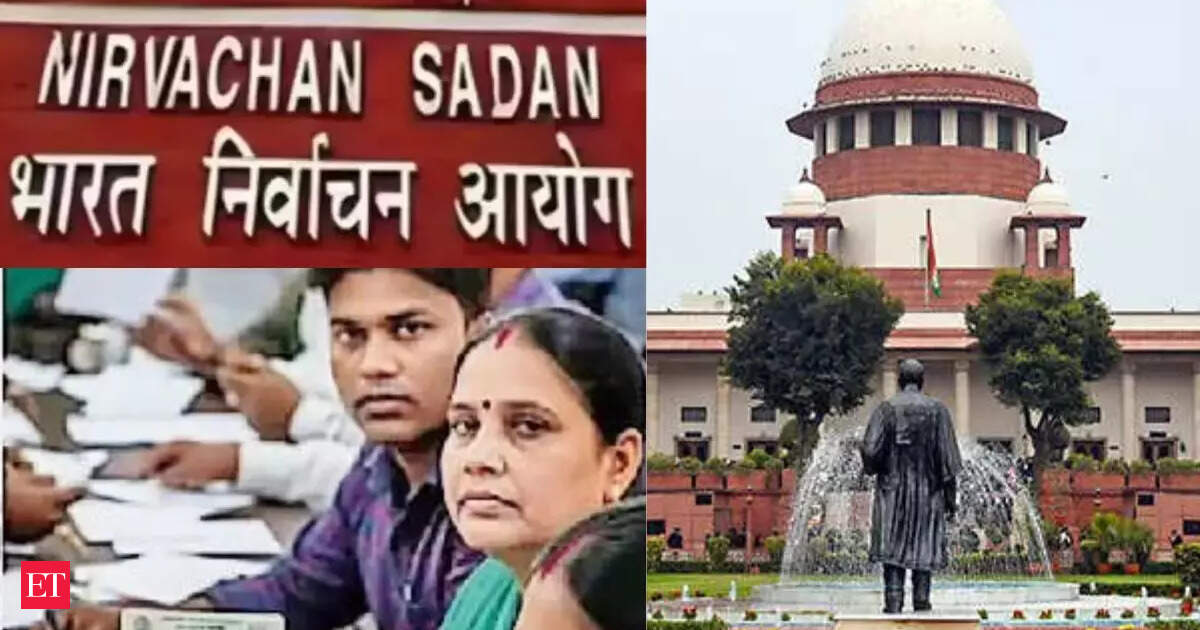The EC submitted a detailed affidavit to the court, opposing a petition filed by 11 opposition parties, NGOs, and residents of Bihar. The petition demands the scrapping of the SIR and holding the upcoming November state election on the basis of the earlier rolls revised in December.
Citizenship not affected by exclusion from voter list
The Election Commission clarified that a person’s citizenship does not end if their name is missing from the electoral rolls.
“Under the SIR exercise, citizenship of an individual will not terminate on account of the fact that he/she is held to be ineligible for registration in the electoral rolls,” the affidavit said.
It also added that the SIR process does not violate any law or fundamental rights of voters, and urged the Supreme Court to dismiss the petition.
Voter ID and Aadhaar not enough for verification
The EC defended its choice to not rely on the Electors Photo Identity Card (EPIC), Aadhaar, or ration cards as proof of eligibility.“The conceptual and procedural integrity of a de-novo revision would stand undermined if EPICs, which are merely reflective of prior entries, are used to validate entries in a roll that is required to be constructed anew,” the EC said. “The EPIC, being a by-product of an earlier electoral roll, cannot substitute the verification process mandated for fresh preparation.”On Aadhaar, the affidavit stated, “Aadhaar is merely a proof of identity of a person. A person who seeks to claim a benefit can utilise an Aadhaar card to show he/she is who he/she claims to be… There are restrictions on usage of Aadhaar to check eligibility under Article 326.”
Fake ration cards a concern
The Commission also raised concerns about the authenticity of ration cards. It noted that due to the widespread presence of fake ration cards, the document was not included in the list of 11 documents accepted for verifying voter eligibility.
“There are a large number of fake ration cards floating around in the country,” the EC told the court.
The EC further stated that the SIR exercise does not invoke Section 9 of the Citizenship Act and does not affect the legal status of any individual as a citizen.
By distancing the SIR process from citizenship determination, the EC aimed to assure the court that exclusion from the revised voter list does not mean loss of legal rights or nationality.
Aadhaar can’t be the only ID for benefits: Meghalaya HC
Meanwhile, in another case, the Meghalaya High Court has said that Aadhaar alone should not be treated as the only valid proof of identity to access government schemes. It issued an interim order asking state authorities to accept other forms of identification from people who either do not have or do not wish to share their Aadhaar number.
Other documents like PAN and voter ID must be accepted
The court stated that individuals must be allowed to use alternative valid documents such as PAN cards, voter ID cards, or passports in place of Aadhaar to access schemes like post-matric scholarships or financial assistance for SC/ST students.
The bench pointed out that the Aadhaar Act of 2016 does not insist on Aadhaar being the only form of identity proof. Referring to Section 7 of the Act, the judges said that if a person does not have an Aadhaar number, the authorities must provide other ways to confirm identity and deliver the benefit.
The court also observed that the Aadhaar Act applies to “residents” and not just “citizens.” A resident, under the Act, is defined as someone who has lived in India for at least 182 days in the previous 12 months.
The case, brought through a PIL by activist Greneth M Sangma, challenged a state rule that made Aadhaar mandatory for availing benefits. The High Court has scheduled the next hearing on August 12, when it will review the Aadhaar Act further in light of existing laws and previous Supreme Court rulings.




